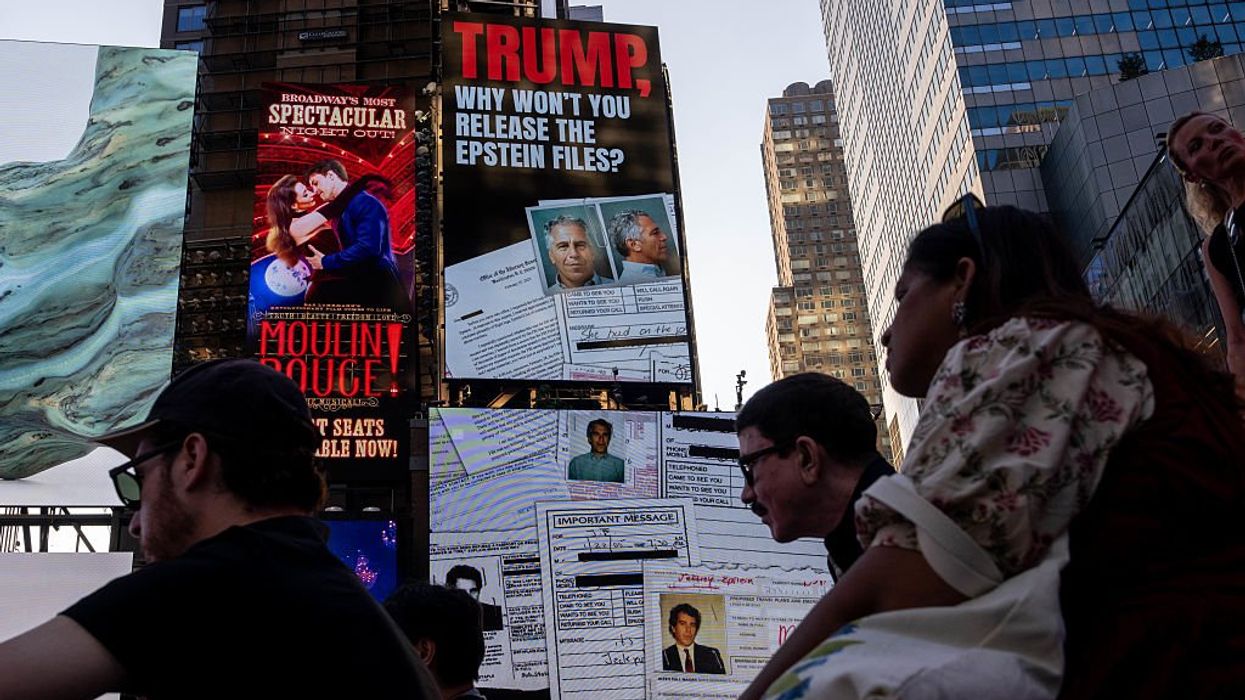The past several weeks have produced a 24/7 churn of speculation surrounding the lack of transparency from the White House on President Donald Trump’s relationship to the late convicted pedophile and alleged sex trafficker Jeffrey Epstein.
The scandal dominating the news cycle and social media appears for the first time to have driven a wedge between members of the MAGA community and elected Republicans.
In the swirl of media denials and accusations, political gaslighting, plus analysis by pundits and experts, there is a notable gap in discourse around the racist, classist realities of sex trafficking law enforcement-led operations in the U.S. today.
Research shows the anti-trafficking movement has its roots in moral panic surrounding the fear of “white slavery” during the era of the suffragette. This movement is led by middle-class and wealthy women centered on men of color coming for the virginity of white women, the luring of innocents to city life, and the arrival of new immigrant populations they viewed as a threat.
The prohibition of vice in the U.S., namely alcohol, opium, and sex work, has been tied to classist, racist, and xenophobic public policy and enforcement.
As evidenced by the lack of survivor involvement in decision-making around the release of the Epstein files, the current outrage is less about the desire to save the children or seek justice for survivors and more a bipartisan political stunt in the pursuit of power.
This leveraging of victims’ stories for political gain is not unique and is a distinct marker in many aspects of the anti-trafficking movement. Michael Flynn, former National Security Advisor, posted on X, “Regardless of what class of society abuses and commits crimes against CHILDREN, it is NEVER acceptable.”
Perhaps Flynn touched on classist immunity for exploiters that needs to be understood in mainstream discussion. Still, the lack of historical awareness is a major flaw in the anti-trafficking movement.
Human trafficking is often conflated with sex work and erases the reality of labor trafficking. This erasure ignores exploitation of groups of people through targeted, systemic sexual assault, forced labor, xenophobia, and genocide.
This is ongoing and historic, a replaying of historical systems of sex, labor, and marriage exploitation. The United States laws, systems, and culture are responsible for creating the conditions that have led to the current sexual violence crisis.
Anti-trafficking organizations, law enforcement, and celebrities frequently use data that is anecdotal, sensationalistic, and lacks the scrutiny of proof of the source applied to evidence-based practices.
The underground nature of both sex trafficking and consensual sex work makes it difficult to track or verify numbers, especially considering how many organizations and individuals have made careers based on these suspect data points. One concern by sex worker rights advocates reveals that law enforcement released data on trafficking “rescues” are most often vice stings and raids on consensual sex workers.
Arrests for prostitution-related offenses outnumber those for sex trafficking by nearly 38 to 1. The FBI defines sex trafficking as "inducing a person by force, fraud, or coercion to participate in commercial sex acts, or in which the person induced to perform such act(s) has not attained 18 years of age.”
Much like the 1980s war on drugs, the penalties associated with BIPOC or poor white offenders in relation to sex crimes reveal a similar inequity in discourse and the impact of criminalization. The war on drugs was focused on the criminalization of Black men. Today, racist and classist policing of BIPOC people in relation to sex work erases the history of human trafficking into slavery historically.
Between 2005 and 2015, 57% of defendants in U.S. federal minor sex trafficking trials were Black, yet only about 13% of the U.S. population is African-American. On average, Black people convicted of sex trafficking minors are sentenced for 39 months longer than white people, according to 2020 research.
Whether or not the Epstein files reveal Trump was involved in trafficking and exploitation of people, it is happening now in mass deportation efforts, further development of U.S. slave trade through mass incarceration, and the development of concentration camps like Alligator Alcatraz that are rooted in a sordid, racist, and xenophobic past.
The United States created the conditions for sex, marriage, and labor trafficking with its public policy, then propped itself up as a savior and rescuer for the issue it created. This was meant to drive more spending on law enforcement, gentrification efforts, and unscrupulous, coercive “anti-trafficking” NGOs.
Apart from racialized men as the focus of law enforcement-led trafficking operations, new research from the Critical Trafficking and Sex Work Studies Research Cluster out of York University shows evidence that young women of color, who are often victims themselves, are being charged as co-conspirators in sex trafficking cases.
Within this “anti-trafficking” landscape, research shows there is a co-opting of racial justice language by NGOs that say they are addressing “modern slavery,” while upholding the interests of the state and corporations.
What remains clear in the Epstein case, after seeing news clips of white, blonde women and girls made vulnerable to exploitation through poverty, and then sexually coerced, forced, assaulted, and sold by the billionaire and his associates, is that this MAGA retelling is that they are the perfect victim, the virginal white young girl or woman.
While many survivors are white, hundreds of thousands of survivors do not fit that mold.
In a two-year review done by the FBI of all suspected human trafficking incidents, 40% of victims of sex trafficking were African American. A 2015 survey of Black transwomen found that 53% have experienced sexual violence. Nearly half of all Black/African/African American transgender people, 47%, have been incarcerated, and incarcerated transgender individuals are 10 times as likely to be sexually assaulted by their fellow inmates and five times as likely to be sexually assaulted by staff.
All survivors have long-lasting traumatic effects. Research from the American Psychological Association shows that the effects of human trafficking on survivors are severe depression, suicidal ideation, and PTSD.
Dealing with the crisis of sex trafficking as a nation, it is urgent to finally wake up to the realities of what victims in this country face under the pressure of being silenced by those in power.
This is about the erasure of the less-understood stories about systemic, state-sanctioned human trafficking under the guise of public safety. Transparency of the systems in place could inform how to move forward with survivor protection for everyone in the future.
Soma Snakeoil is Executive Director/Cofounder of The Sidewalk Project, which specializes in resources for street-based sex workers and survivors. She is a Public Voices Fellow of The OpEd Project.



















